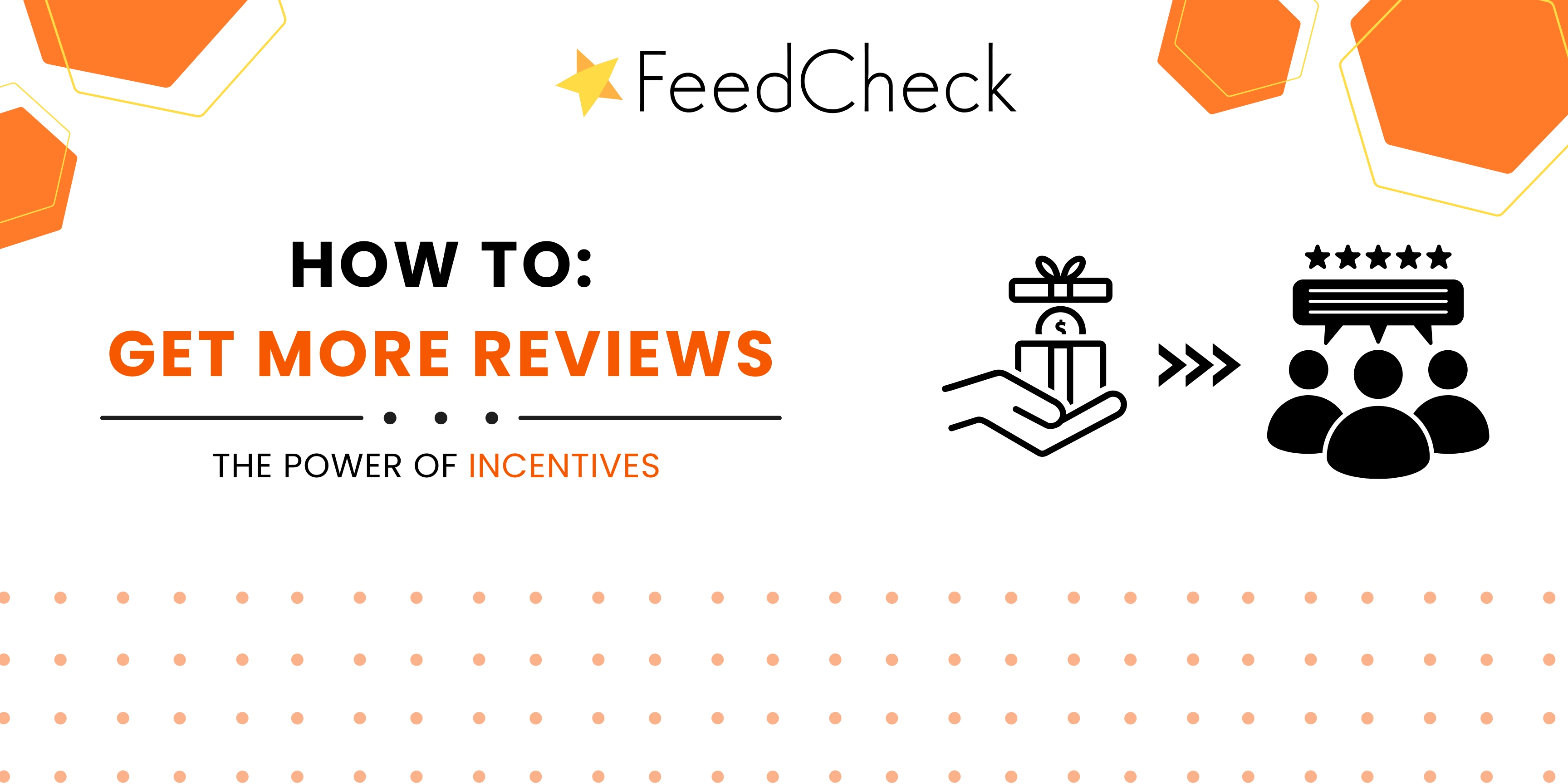Everyone running their own business has wondered at some point what they can do to get more reviews. In the hospitality and services industry in particular, being such a client-centered domain, online reviews often make or break a brand.
Whether it’s a local restaurant, a hotel, a wellness spa, or a chain of gyms, the words of your customers carry more weight than you might imagine. But while everyone agrees reviews are essential, getting customers to actually write them is another story. And that’s where incentives come in.
What is an incentivized review?
An incentivized review is a type of customer feedback that’s prompted by a reward – decided by the brand, but it can come in many forms. While the review itself comes from the customer, it’s encouraged by some form of compensation.
It’s a simple exchange: the business gets social proof, and the customer gets recognition and value for leaving the review.
Let’s face it, most people won’t take the time to leave feedback unless they’re satisfied beyond expectations, or deeply disappointed. The majority, however, fall somewhere in the middle. They had a good experience, but simply forgot to share it. Incentivizing feedback is a way to gently nudge customers into action and showing appreciation in return.
That said, incentivized reviews differ from organic reviews, which are written voluntarily, with no external motivation. The introduction of a reward can potentially create bias – and that’s something both businesses and customers should be aware of.
Are incentivized reviews trustworthy?
A brand needs reviews to thrive, so they overcome that obstacle of collecting them by rewarding people for feedback. They get more reviews, and the customer gets a little something for their feedback. But that makes a lot of people wonder about whether incentivized reviews can actually be trusted.
The reality is, incentives can sometimes sway the tone of a review. Even though not explicitly mentioned anywhere, customers may feel obliged to write something positive to ‘earn’ the reward, which risks distorting honest feedback.
Even worse, some brands misuse incentives to push for glowing reviews only, crossing the ethical boundary, and potentially breaking laws in the process.
In the United States, the FTC makes it clear: a brand cannot pay for positive reviews or mislead customers about the nature of endorsements. The EU has similar regulations that apply, while platforms like Amazon and TripAdvisor have strict policies against incentivized reviews that are not clearly disclosed.
And if consumers catch wind of shady practices, it is bound to backfire. A recent study found that 71% of customers won’t visit a business if they suspect fake or manipulated reviews, so brands need to be careful. Transparency is key.

How to incentivize customers to leave reviews
It’s absolutely legal to offer incentives for feedback. However, you cannot make incentives conditional on the review being positive, and it should be clearly stated that the reward is for the act of reviewing, not for a favorable opinion.
In the hospitality and services industry, the most common types of incentives are:
- Discounts on their next visit
- Coupons for services or dining
- Free products or updates
- Cashback or gift cards
- Exclusive access to events or new offerings
- Donations made in their name
These approaches work best when they align with your brand values and feel natural to your service. But remember, the goal isn’t just to increase volume, but to receive authentic, valuable feedback from real customers, in order to learn from it.
Just as important, you need to learn what not to do to get more feedback. As tempting as it may be, don’t offer rewards only for 4+ star reviews – besides violating most platform’s policies, it also undermines the purpose of feedback.
You should also never offer incentives so generous that they attract people only for the reward, or delete negative reviews simply because they hurt your image. Stay focused on encouraging honest feedback, and it will do wonders for your business.
Why incentivized reviews work
Used correctly, incentives can help you get more reviews, and fast. That’s crucial for new openings, seasonal campaigns, or simply building credibility in a competitive market.
The main benefits of incentivized feedback are:
- Increased feedback volume. Getting more reviews means your online presence grows stronger, and your reputation becomes more trustworthy.
- Faster collection. If you’re ever looking to learn what people think about your brand quickly, incentives may be the way to go. People love rewards, so use them for building visibility.
- Boost awareness and SEO. A lot of brands forget that online reviews play a huge role in local search rankings, working in their favour for SEO. More reviews, more online visibility.
- Social proof. With 73% of customers having more confidence when a trust signal is displayed with a review, your business becomes more credible, and your trustworthiness grows stronger.
- Improved decision-making. More feedback comes with a sea of insights from real customers you may have not considered beforehand. Getting more reviews would actually help act on your reviews, whether that’s fine-tuning services, staff training, or pricing.

Understanding incentivized reviews
Now, don’t imagine your job is done once you start getting more reviews. Use a review monitoring service like FeedCheck to aggregate feedback from multiple platforms into one dashboard.
You can identify trends and recurring patterns through analytics, and find areas for improvement – simply by digging deeper into real feedback from real people. You can compare reviews across locations and spot operational differences, or see how competitors are stacking up, understanding market positioning.
Opportunities for improvement are endless when you analyse your reviews. Aggregating customer reviews from every touchpoint helps you see the full picture and make smarter, faster decisions, improving in-person sales as you go.
Conclusion
Incentivized feedback can be a really good idea, when implemented transparently, legally, and with your customer’s best interest in mind.
Don’t manipulate people into leaving positive reviews. Instead, encourage them to share their real experiences and making them feel appreciated. It’s about building trust at scale, improving foot traffic, and staying competitive in an increasingly review-driven world.
At FeedCheck, we help brands go beyond collecting reviews. We turn aggregated feedback into powerful insights, helping you grow your reputation, improve operations, and increase in-person sales.
If you’re ready to take your customer review strategy to the next level, schedule your demo and see how FeedCheck can work for you.
